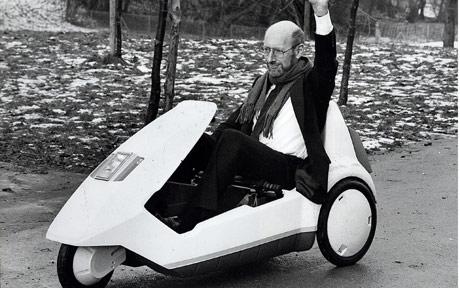stephen bennett
Mr Enigma
I know a lot of us are computer geeks, so this pictorial history looks interesting.
What a wonderful time for designers.
Stephen
What a wonderful time for designers.
Stephen
No ZX Spectrum of Commodore 64? Perhaps the two most influential computers of all time, as they got a whole generation (approximately those whose were teenagers in the 1980s) into computers. Nobody outside the UK had heard of the Alice 90, it was only sold in France. Terrible feature.
Most influential computer of all time?
Probably the IMSAI because of WarGames.
Or maybe the Archimedes because of RISC and ARM.
Or just possibly the IBM PC?
Like it or not, Amstrad/Alan Sugar are WAY out in front as the most influential. That was where a certain Mr Gates got his major break.
Sadly I don't think I kept any of my early PC's
I’m not convinced you have your timeline right there! The Amstrad PCs were a bargain-bucket clone that arrived sometime around 86-87, i.e. long after the IBM XT and the Compacs etc. The PC1512 & 1640 were a very UK-centric thing and even here had very little take-up in the corporate world (which bought the far more expensive but far better built and more reliabke IBMs and Compacs). I realise Gates wanted his OS on the Amstrads, but he wanted it everywhere and was clever enough to play a long game. Sugar never really understood computers at all, he’s just a ‘make ‘em cheap, pile ‘em up’ east end barrow-boy! I’ll never forgive him for the styleless abominations that came out under the Sinclair name after he’d bought the company!
PS Home computers in the ‘70s and early ‘80s were very much a local thing, e.g. whilst the various Sinclairs and BBC B owned the UK market they made little if any impression on the USA where Apple, Commodore etc were dominant.
The ‘feature’ is just information about the book.
I suspect that will have a few more pictures in it...
It’s a history not a competition.
There’s just no pleasing some people!
Stephen
No Acorn (including the BBC for the UK)?
Purely for its infamous failure, the ICL OPD.
Purely for its infamous failure, the ICL OPD.
Why oh why tape microdrives when everyone else had floppy disc.

........I really wish I'd kept my Compaq SLT286.........
Simple answer:
